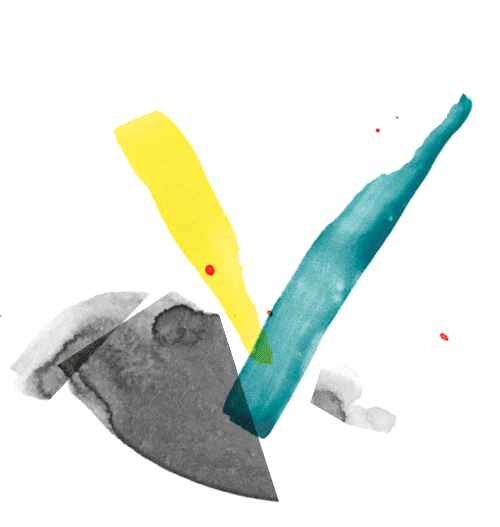

Sign up for our newsletters. You can change the settings or unsubscribe at any time.
Thank you for your subscription. We have sent you an e-mail with a confirmation link.


exp. 1
exp. 2
exp. 3

Mariela Scafati
Venue: KW Institute for Contemporary Art
Mariela Scafati
Born 1973 in Buenos Aires, AR – lives and works in Buenos Aires
A painter, printmaker, and queer activist, Mariela Scafati challenges the formal conventions of modernism in her three-dimensional objects and installations, while imagining transformative utopian scenarios that evoke collectivity and solidarity. Scafati creates a kind of intersectional feminism of forms, migrating between diverse artistic disciplines and media. Her sculptural scenarios are made of panels of monochrome paintings—anthropomorphic shapes modeled after people close to the artist. They are resilient compositions adaptable to different choreographies.
Since it was first conceived, her new piece, Movilización [Mobilization, 2020], has undergone a process of transformation that reflects the global pandemic which brought daily life in so many countries to a grinding halt, as well as the protests against police brutality and systemic racism. Meanwhile, in her own country, far-right demonstrators took to the streets to protest lockdown measures; until then, popular dissent in Argentine cities had been more typically associated with feminist groups protesting patriarchal violence against women. A painterly composition originally consisting of upright bodies preparing to engage in some sort of demonstration, the piece now comprises sixty-five prostrate bodies in a state of attentive horizontality. Their stillness pays homage to those unable to rise up on their own but also acknowledges the political potential of fragility as an “oblique form of imagining a [better] tomorrow,” in the words of art historian Nicolás Cuello, who collaborated with Scafati by contributing a poetic text that forms part of the installation. Movilización thus embraces the choreography of the pandemic moment with its temporary suspension of social life to reflect upon the future forms that collective political and social action may take.
Övül Ö. Durmusoglu
Memorial to the Sinti and Roma Victims of National Socialism
Dani Karavan
Memorial
Feminist Health Care Research Group
Web archive
A World Without Bones
Agustín Pérez Rubio
#fight4rojava
Graffiti
Glossary of Common Knowledge
L’Internationale Online
Glossary
Touching Feeling. Affect, Pedagogy, Performativity
Eve Kosofsky Sedgwick
Monograph
By using this website you agree to the use of cookies in accordance with our data privacy policy.

Mariela Scafati
Venue: KW Institute for Contemporary Art
Mariela Scafati
Born 1973 in Buenos Aires, AR – lives and works in Buenos Aires
A painter, printmaker, and queer activist, Mariela Scafati challenges the formal conventions of modernism in her three-dimensional objects and installations, while imagining transformative utopian scenarios that evoke collectivity and solidarity. Scafati creates a kind of intersectional feminism of forms, migrating between diverse artistic disciplines and media. Her sculptural scenarios are made of panels of monochrome paintings—anthropomorphic shapes modeled after people close to the artist. They are resilient compositions adaptable to different choreographies.
Since it was first conceived, her new piece, Movilización [Mobilization, 2020], has undergone a process of transformation that reflects the global pandemic which brought daily life in so many countries to a grinding halt, as well as the protests against police brutality and systemic racism. Meanwhile, in her own country, far-right demonstrators took to the streets to protest lockdown measures; until then, popular dissent in Argentine cities had been more typically associated with feminist groups protesting patriarchal violence against women. A painterly composition originally consisting of upright bodies preparing to engage in some sort of demonstration, the piece now comprises sixty-five prostrate bodies in a state of attentive horizontality. Their stillness pays homage to those unable to rise up on their own but also acknowledges the political potential of fragility as an “oblique form of imagining a [better] tomorrow,” in the words of art historian Nicolás Cuello, who collaborated with Scafati by contributing a poetic text that forms part of the installation. Movilización thus embraces the choreography of the pandemic moment with its temporary suspension of social life to reflect upon the future forms that collective political and social action may take.
Övül Ö. Durmusoglu
Género y colonialidad en busca de claves de lectura y de un vocabulario estratégico descolonial
Rita Segato
Essay
BLM KOREA ARTS
#BlackLivesMatter #BLMKoreaArts
Young-jun Tak
Statement
I: Junto a las curadoras de la XI Berlin Biennale for Contemporary Art
Renata Cervetto, Lisette Lagnado
Conversation
Queer Ancient Ways: A Decolonial Exploration
Zairong Xiang
Monograph
„Klaus Eckschen: Hörspiel“
Die Remise
Hörspiel
Feminist Health Care Research Group
Web archive
By using this website you agree to the use of cookies in accordance with our data privacy policy.

Mariela Scafati
Venue: KW Institute for Contemporary Art
Mariela Scafati
Born 1973 in Buenos Aires, AR – lives and works in Buenos Aires
A painter, printmaker, and queer activist, Mariela Scafati challenges the formal conventions of modernism in her three-dimensional objects and installations, while imagining transformative utopian scenarios that evoke collectivity and solidarity. Scafati creates a kind of intersectional feminism of forms, migrating between diverse artistic disciplines and media. Her sculptural scenarios are made of panels of monochrome paintings—anthropomorphic shapes modeled after people close to the artist. They are resilient compositions adaptable to different choreographies.
Since it was first conceived, her new piece, Movilización [Mobilization, 2020], has undergone a process of transformation that reflects the global pandemic which brought daily life in so many countries to a grinding halt, as well as the protests against police brutality and systemic racism. Meanwhile, in her own country, far-right demonstrators took to the streets to protest lockdown measures; until then, popular dissent in Argentine cities had been more typically associated with feminist groups protesting patriarchal violence against women. A painterly composition originally consisting of upright bodies preparing to engage in some sort of demonstration, the piece now comprises sixty-five prostrate bodies in a state of attentive horizontality. Their stillness pays homage to those unable to rise up on their own but also acknowledges the political potential of fragility as an “oblique form of imagining a [better] tomorrow,” in the words of art historian Nicolás Cuello, who collaborated with Scafati by contributing a poetic text that forms part of the installation. Movilización thus embraces the choreography of the pandemic moment with its temporary suspension of social life to reflect upon the future forms that collective political and social action may take.
Övül Ö. Durmusoglu
Fragments of the Artist’s Diary, Berlin 11.2019–1.2020
Virginia de Medeiros
Diary
COVID-19 VIDEOS
Carlos Motta
Video
THE MOBILIZATION
Nicolás Cuello
Text
Freiheit für Chile!
Anonymous
Photo album
Flávio de Carvalho: Fazenda Capuava
Archive of Lisette Lagnado
Photographs
Género y colonialidad en busca de claves de lectura y de un vocabulario estratégico descolonial
Rita Segato
Essay
By using this website you agree to the use of cookies in accordance with our data privacy policy.

Mariela Scafati
Venue: KW Institute for Contemporary Art
Mariela Scafati
Born 1973 in Buenos Aires, AR – lives and works in Buenos Aires
A painter, printmaker, and queer activist, Mariela Scafati challenges the formal conventions of modernism in her three-dimensional objects and installations, while imagining transformative utopian scenarios that evoke collectivity and solidarity. Scafati creates a kind of intersectional feminism of forms, migrating between diverse artistic disciplines and media. Her sculptural scenarios are made of panels of monochrome paintings—anthropomorphic shapes modeled after people close to the artist. They are resilient compositions adaptable to different choreographies.
Since it was first conceived, her new piece, Movilización [Mobilization, 2020], has undergone a process of transformation that reflects the global pandemic which brought daily life in so many countries to a grinding halt, as well as the protests against police brutality and systemic racism. Meanwhile, in her own country, far-right demonstrators took to the streets to protest lockdown measures; until then, popular dissent in Argentine cities had been more typically associated with feminist groups protesting patriarchal violence against women. A painterly composition originally consisting of upright bodies preparing to engage in some sort of demonstration, the piece now comprises sixty-five prostrate bodies in a state of attentive horizontality. Their stillness pays homage to those unable to rise up on their own but also acknowledges the political potential of fragility as an “oblique form of imagining a [better] tomorrow,” in the words of art historian Nicolás Cuello, who collaborated with Scafati by contributing a poetic text that forms part of the installation. Movilización thus embraces the choreography of the pandemic moment with its temporary suspension of social life to reflect upon the future forms that collective political and social action may take.
Övül Ö. Durmusoglu
Feminist Health Care Research Group
Web archive
O Bailado do Deus Morto
Flávio de Carvalho
Play
Queer Ancient Ways: A Decolonial Exploration
Zairong Xiang
Monograph
BLM KOREA ARTS
#BlackLivesMatter #BLMKoreaArts
Young-jun Tak
Statement
III: La familia son quiénes se alegran con nuestros actos diarios. Detrás de las curadoras de la XI
María Berríos, Agustín Pérez Rubio
Conversation
Undocumented Rumours and Disappearing Acts from Chile
María Berríos
Essay
By using this website you agree to the use of cookies in accordance with our data privacy policy.
By using this website you agree to the use of cookies in accordance with our data privacy policy.




